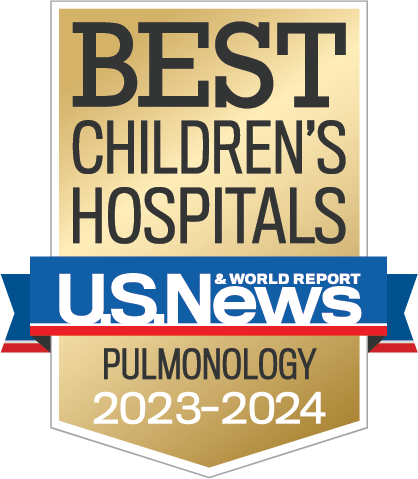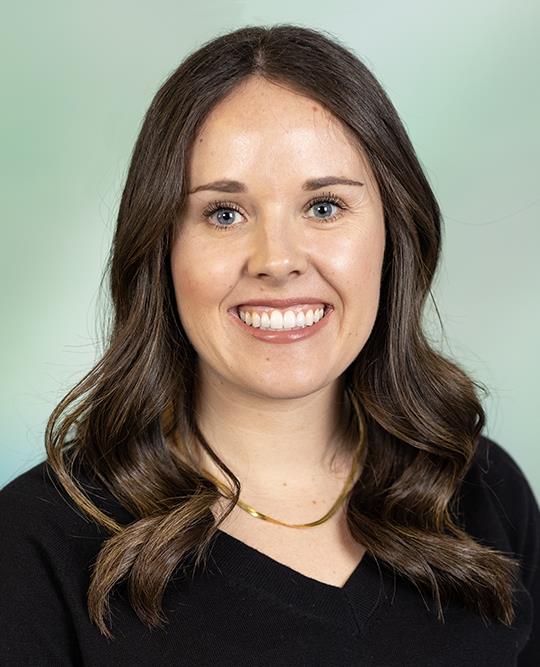- Doctors & Departments
-
Conditions & Advice
- Overview
- Conditions and Symptoms
- Symptom Checker
- Parent Resources
- The Connection Journey
- Calm A Crying Baby
- Sports Articles
- Dosage Tables
- Baby Guide
-
Your Visit
- Overview
- Prepare for Your Visit
- Your Overnight Stay
- Send a Cheer Card
- Family and Patient Resources
- Patient Cost Estimate
- Insurance and Financial Resources
- Online Bill Pay
- Medical Records
- Policies and Procedures
- We Ask Because We Care
Click to find the locations nearest youFind locations by region
See all locations -
Community
- Overview
- Addressing the Youth Mental Health Crisis
- Calendar of Events
- Child Health Advocacy
- Community Health
- Community Partners
- Corporate Relations
- Global Health
- Patient Advocacy
- Patient Stories
- Pediatric Affiliations
- Support Children’s Colorado
- Specialty Outreach Clinics
Your Support Matters
Upcoming Events
Colorado Hospitals Substance Exposed Newborn Quality Improvement Collaborative CHoSEN Conference (Hybrid)
Monday, April 29, 2024The CHoSEN Collaborative is an effort to increase consistency in...
-
Research & Innovation
- Overview
- Pediatric Clinical Trials
- Q: Pediatric Health Advances
- Discoveries and Milestones
- Training and Internships
- Academic Affiliation
- Investigator Resources
- Funding Opportunities
- Center For Innovation
- Support Our Research
- Research Areas

It starts with a Q:
For the latest cutting-edge research, innovative collaborations and remarkable discoveries in child health, read stories from across all our areas of study in Q: Advances and Answers in Pediatric Health.


Asthma
Asthma in Children
Kids aren’t just mini adults. In fact, they’re incredibly different. That’s why they need incredibly different care.

What is asthma?
Asthma is a chronic respiratory condition that usually develops during childhood. It occurs when the airways in the lungs become inflamed (swollen) and constrict (become smaller), making breathing difficult.
Asthma affects all the airways in the respiratory system, from the windpipe (trachea) in the neck to the smallest airways in the lungs. No two children with asthma experience it exactly the same way. Asthma affects the airways of children in three ways:
- Inflammation (swelling) of the lining of the airways decreases the amount of room there is for air to flow in and out. This swelling can last for weeks after an acute episode, called an asthma attack, or it may become a condition that never completely goes away.
- Bronchospasm is a tightening of the muscles that surround the airways. This narrows the airway, preventing air from getting in or out of the lungs.
- Excessive mucus produced in the lungs often blocks the airways.
Symptoms occur when asthma triggers, such as a cold or allergies, irritate the airways. Proper treatment can control asthma in the majority of children. Because symptoms vary from child to child and from episode to episode, four keys to successful treatment include:
- Individualized care programs
- Recognizing warning signs of a severe episode
- Early treatment
- Avoiding things that trigger asthma attacks as much as possible
What causes asthma in children?
Researchers are still not sure exactly what causes asthma in kids, but they do know that both genetics and the environment can cause it. It is important for parents to learn what causes asthma attacks and increased asthma symptoms for children.
When a child with asthma has difficulty breathing, we call it an asthma attack. Asthma attacks are caused by the three factors described above: inflammation, bronchospasms and excess mucus.
Asthma attacks are set off by things around us called "triggers." Because every child's asthma is different, every child's triggers are also different. Common asthma triggers in children include:
- Smoking and vaping
- Colds and respiratory viral infections
- Exercise
- Strong odors/smells
- Pollution
- Perfumes or cleaning agents
- Environmental allergens (including trees, grass and pets)
- Dust
- Mold or mildew
- Cold air
- Food allergies
- Strong emotions or stress
- Wildfire smoke
Triggers are specific to each child, but smoking, secondhand smoke and thirdhand smoke have a strong negative effect on children's asthma. Protect your child from secondhand and thirdhand smoke by keeping your home and car smoke-free.
Why is it important to treat asthma in children?
Early identification and treatment of asthma is important to a child's health, growth and development. Untreated asthma can lead to loss of lung function over time and affect your child's ability to participate in sports and other activities. Asthma is also one of the leading causes of school absences.
What is the difference between allergies and asthma?
Asthma is inflammation and obstruction of airflow in the airways. Allergies are one of the factors that can trigger asthma attacks. Not all children with asthma have allergies, and many kids who have allergies do not have asthma.
If your child is old enough, we can perform allergy skin-testing or lab testing for environmental allergens. With these results, our pediatric allergy specialists can determine what your child is allergic to and create a treatment plan to relieve symptoms related to asthma and other allergic reactions.
Children with asthma that is triggered by allergies are also likely to experience other allergic conditions, such as food allergies, hay fever or eczema. Though asthma is an allergic condition that is connected to eczema and food allergies, children who are diagnosed with eczema and food allergies at a young age are often not diagnosed with asthma until they are 2 to 3 years old.
Who gets asthma?
More than 25 million people in the United States, including almost 6.1 million children, have been diagnosed with asthma. Doctors are not sure why some people get asthma, but you are more likely to have it if someone in your family has asthma or allergies.
Asthma can occur at any age, but it is more common in children than adults. Young boys are nearly twice as likely as young girls to develop asthma, but that is not the case in older children and adults. Obesity is a newly identified risk factor for asthma.
The Connection Journey
Helping kids breathe easier
Though it can be scary to learn your child has asthma, receiving a diagnosis and teaching kids how to care for themselves are the first steps to helping them breathe easier. Angela, a mom of two daughters with asthma, shares her family's experience to help Claudia with Yaretzi's journey.
What are the signs and symptoms of asthma in children?
The signs and symptoms of asthma in children include:
- Frequent cough
- Wheezing
- Difficulty breathing with exercise
- Coughing during the night
- Shortness of breath or difficulty breathing
- Frequent respiratory illnesses or pneumonia
If your child has any of these symptoms on a regular basis, you should see your healthcare provider.
Signs of an asthma attack that require immediate emergency care include:
- Difficulty breathing while walking or talking
- A change in skin, fingernail or lip color to gray or blue
- Inward movement of the muscles in the neck, chest or ribs or flaring of the nostrils
- Failure of medications to reverse or control worsening symptoms
- Declining peak flow meter readings in spite of medication use (Aa peak flow meter measures how fast a child can blow air out of their lungs)
How do we diagnose asthma?
To diagnose asthma in children, our pediatric asthma experts will ask questions about your child's symptoms, medical history and your family medical history, and then perform a physical exam. The most common test used to diagnose asthma is called spirometry. If your child has allergies, your healthcare provider may conduct allergy skin testing as well.
What tests are used to diagnose asthma in children?
Our pediatric asthma specialists use a variety of pulmonary function tests to diagnose and treat asthma in kids.
Spirometry for asthma testing in children
During a spirometry test, your child takes a deep breath and blows out the air as fast as possible. A child-friendly computer and our respiratory therapist coaches your child on how to do the test. This is a painless test that children find fun and provides valuable information for parents and the healthcare provider.
In general, children starting at age 5 can perform spirometry. The test results show the total volume of air they breathe out. This shows whether your child's flow of air from the large and small airways is normal. If the results are low, a provider may give your child an inhaled medication called albuterol. Then your child repeats the spirometry test 15 minutes later to see if the results improve. This test can help diagnose asthma as well as other lung conditions.
Exercise-induced bronchoconstriction (EIB) test and the methacholine challenge asthma testing
Depending on your child and their symptoms, our providers might use other tests to diagnose asthma, including the exercise-induced bronchoconstriction (EIB) test and the methacholine challenge.
- The EIB test is a series of spirometry tests kids perform before and after exercising on a treadmill. It measures airway reactivity to exercise.
- The methacholine challenge uses a gas called methacholine to determine airway reactivity. Your child breathes the gas and then does a series of spirometry tests.
How is asthma treated?
Asthma medications help relieve and prevent symptoms by decreasing inflammation and bronchoconstriction (swelling and spasm in the lungs). All medications may have side effects. Be aware of potential side effects and notify your child's healthcare provider if side effects develop. To effectively manage asthma, it is very important for your child to regularly take prescribed medications and take them as instructed by the doctor.
Asthma treatment options for kids
- Quick-relief medication provides fast relief of asthma symptoms like coughing, wheezing or difficulty breathing by relaxing the muscles in and around the airways. This type of medication is known as a bronchodilator.
- Controller medication is used on a daily basis to avoid asthma symptoms by preventing inflammation or swelling inside the airways. This medication is usually an inhaled corticosteroid. Another type of controller medication is combination therapy. This is a combination of an inhaled steroid and a long-acting bronchodilator medication. A controller medication will not provide quick-relief for asthma symptoms. Your child should not take it to relieve acute asthma symptoms.
- A steroid burst is a course of oral steroids, usually prescribed for a few days when a child is having an asthma exacerbation, to help relieve airway inflammation.
- An asthma action plan details the prescribed asthma controller medication, relief mediations, triggers to avoid and when to step up therapy. We provide asthma action plans at each clinic visit. Download an Asthma Action Plan in English (.pdf) or Asthma Action Plan in Spanish (.pdf) to help guide your child's asthma care.
How to use an inhaler
We have resources to help you and your child learn how to best use the inhaler your doctor prescribes, including videos and instructions on the following in both English and Spanish:
- How to use a Diskus inhaler
- How to use a Flexhaler
- How to use a metered dose inhaler (MDI)
- How to use a Pari nebulizer
- How to use a Twisthaler
- How to use an Acorn nebulizer
- How to use a peak flow meter
How to manage your child's asthma
- Allergies: Children with allergy-induced asthma should avoid the allergens that trigger their asthma when possible. Allergists can perform lab tests to help parents determine what environmental allergens their children should avoid. Minimizing your child's contact with these allergens will lower their risk for asthmatic reactions.
- Exercise: Exercise can also trigger asthma symptoms. Children with asthma symptoms triggered by exercise should remember to treat themselves with their quick-relief medication (bronchodilator) 15 minutes before exercise. Children with asthma should not have to limit their activity in any way. If your child is having trouble with exercise, you should see a doctor to adjust their asthma care.
- Preventing the flu: It is important for all children with asthma to receive a flu vaccine every fall. The flu can make a child with asthma very sick because the virus attacks the lungs and can cause breathing problems, making asthma worse.
- School/camp information: Make sure to share your child's asthma action plan with school and camp. This will help guide those caring for your child in case they have problems with their asthma.
- Tracking medication doses: It is important to keep track of how many doses of asthma medication remain in the device. For the medication devices that do not have a dose counter on them, mark the device with a piece of masking tape and keep track of how many doses you use. Also check medication expiration dates.
- Vacation planning: Your child should always have their quick-relief medication available in case they start wheezing, coughing persistently or have difficulty breathing. When planning for a vacation, remember to check that you will have enough controller medication to last throughout the trip, and that quick-relief medication (for example: albuterol) is easily accessible during travel.
Tips for organizing your child's asthma care
- Provide your child’s school with a school asthma action plan in case symptoms occur at school.
- Keep a copy of your child's asthma action plan at home in a visible place in the house, such as a refrigerator.
- Store all asthma medications and devices in one place, such as a duffle bag or plastic container. Make this storage container easily accessible for you and your child.
- Place a handout for cleaning asthma devices in a commonly used area, such as on the refrigerator, to help remind you about cleaning the devices on a regular basis.
- Coordinate taking controller medications before teeth-brushing in the morning and at night to reduce the chance of forgetting to take the medicine and decrease the possibility of thrush, a fungal infection, in and around the mouth.
Common asthma terms to know
Here are some asthma terms you may hear during a visit to Children's Colorado Asthma Program:
- Asthma exacerbation refers to a period in time when your child experiences asthma symptoms often during the day and night and needs quick-relief medication at least every four hours. Another name for this is an acute asthma attack.
- Bronchospasm is the tightening or spasm of the muscles around the airways, which makes them narrower and more difficult to get air into and out of the lungs.
- Inflammation is irritation, redness and swelling of the airways.
- A peak flow meter is a small device that shows how well your child is able to force air out of the lungs. Peak flow meter readings are specific to each child. They show how your child's asthma is doing on a day-to-day basis.
- A trigger is anything that causes your child to have asthma symptoms.
- Zones refer to your child's asthma action plan. There are green, yellow and red zones, which are categorized by symptoms and peak flow readings. This information helps your child’s healthcare provider determine how bad your child's asthma is at that time.
Why choose Children's Colorado for your child's asthma?
Our Asthma Program sees more children with asthma than any other hospital in Colorado. We provide comprehensive evaluation, asthma management, allergy testing and education. Our multidisciplinary team includes pulmonologists, allergists, nurse practitioners, physician assistants, registered nurses, respiratory therapists, a dietitian and a social worker. Many of our staff members are certified asthma educators.
At Children's Colorado, parents and families are valued members of their child's healthcare team. We take time to answer questions, address your concerns and provide the education and tools you need to manage your child's asthma on a day-to-day basis and during asthma attacks.
Helpful asthma resources
- Allergy and Asthma Network – Mothers of Asthmatics provides useful information about asthma to families and support for parents of children with asthma.
- American Lung Association provides information about all lung diseases, including asthma.
- American Academy of Allergy, Asthma and Immunology provides information about the relationship of allergies and asthma.
- If you or someone you know is a smoker and is considering quitting, try visiting Colorado QuitLine for ideas or assistance. Download the ONE Step brochure (.pdf) today for tips on how to quit smoking. You can also download the ONE Step brochure (.pdf) in Spanish.
Next steps
-
Would you like to learn more about us?
Learn more about the Asthma Program -
Do you have questions about your child’s condition?
720-777-6181 -
Are you ready to schedule an appointment?
Schedule an appointment

Compassionate care, wherever you are
We’re here when you need us. Telehealth appointments are available across every specialty, so you can get the high-quality care we’ve always offered from the comfort, privacy and convenience of home.
See if telehealth is right for you
Get to know our pediatric experts.

Lindsey Wendel, CPNP-PC
Certified Pediatric Nurse Practitioner

Stacey Martiniano, MD
Pulmonology - Pediatric, Pediatrics

Cullen Dutmer, MD
Allergy & Immunology, Pediatrics




 720-777-0123
720-777-0123



